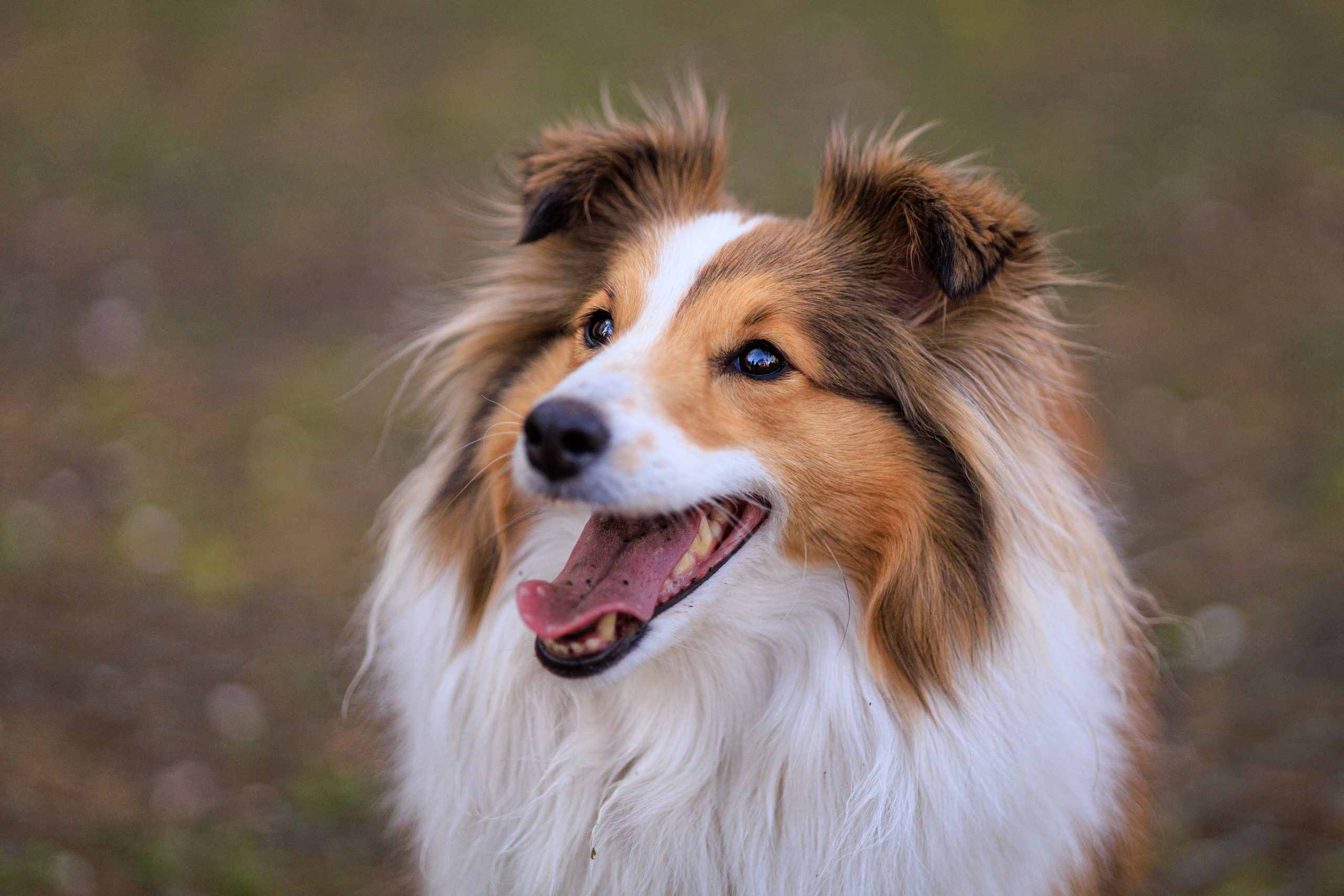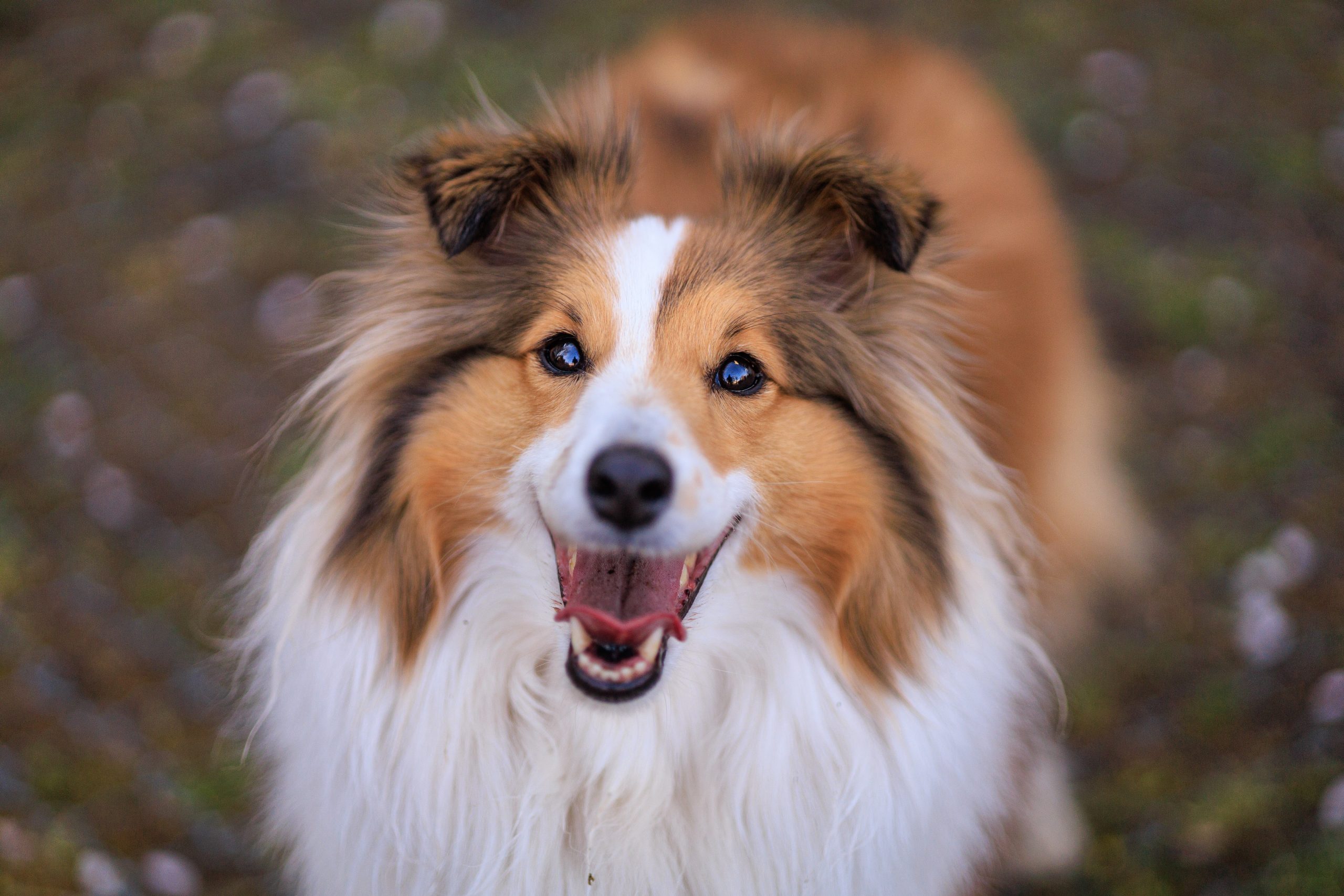Shetland Sheepdogs, affectionately known as Shelties, are small to medium-sized herding dogs renowned for their striking resemblance to the Rough Collie. Aside from their physical allure, Shelties are cherished for their distinct personality traits that make them suitable for various households. Below, we delve into nine temperament traits that define Shelties.
1. Intelligent
Shelties possess remarkable intelligence, making them highly trainable and adept at picking up commands and tricks swiftly. Their keen intellect allows them to excel in obedience and agility training, making them standouts in dog competitions. However, their smarts require mental stimulation to prevent boredom and the onset of destructive behavior.
2. Loyal
Loyalty is a hallmark of the Sheltie temperament. These dogs form close bonds with their families, often attaching themselves to one particular member. Their unwavering loyalty makes them excellent companions, offering emotional support and comfort to their beloved owners.
3. Energetic
Shelties are bundles of energy, requiring regular exercise to maintain their physical and mental health. Engage them in brisk walks, play sessions, and agility courses to help expend their energy constructively. Their active disposition makes them suitable for individuals or families leading dynamic lifestyles.
4. Sensitive
Shetland Sheepdogs are sensitive creatures, attuned to their owners’ emotions and the environment around them. While their sensitivity fosters deep connections with their families, it also means they might get stressed or anxious in tense or chaotic situations. Providing a stable, nurturing environment is crucial for their emotional wellbeing.
5. Vocal
Shelties are known for their vocal nature. While they are not excessive barkers, they will alert their owners to unusual sounds or strangers approaching. Their alertness makes them excellent watchdogs, but training is necessary to manage their barking tendencies effectively.
6. Reserved with Strangers
While loving and affectionate with their families, Shelties tend to be reserved or aloof towards unfamiliar people. Early socialization is vital to help them become more comfortable and confident around strangers, preventing undue timidity or fearfulness.
7. Good with Children
Shelties generally get along well with children, particularly when they are raised together. Their gentle and playful nature makes them good playmates for kids. However, it’s important to teach children how to approach and handle dogs respectfully and safely.
8. Herding Instinct
Due to their herding lineage, Shelties possess a strong instinct to herd, which might extend to children, other animals, or even adults. Understanding and managing this instinct is essential, providing them with appropriate outlets for their herding desires without causing distress to others.
9. Need for Companionship
Shelties thrive on companionship and do not fare well when left alone for extended periods. They crave interaction with their families and might develop separation anxiety if neglected. Ensure you can dedicate sufficient time and attention to a Sheltie before bringing one into your home.
Understanding the Sheltie temperament is crucial for prospective owners to determine whether this breed aligns with their lifestyle and expectations. With their intelligence, loyalty, and sensitivity, Shetland Sheepdogs make delightful companions for those willing to invest the time and energy required to meet their physical, emotional, and mental needs.
How Does a Male Sheltie Temperament Compare to a Female Sheltie?
Male Sheltie Temperament:
1. Size and Energy: Male Shelties are typically larger and possess more energy than their female counterparts. Their additional vigor often necessitates more exercise and mental stimulation to keep them content and prevent destructive behaviors stemming from boredom.
2. Affectionate and Social: Though both genders are affectionate, male Shelties tend to be more demonstrative of their love and attachment to their owners. They are often more social and playful, enjoying interaction with family members and other pets alike.
3. Territorial Instincts: Males might exhibit stronger territorial instincts, marking their space and being more protective of their home and family. Early and consistent training is essential to manage these instincts effectively, preventing aggression or overprotectiveness.
4. Training Challenges: Male Shelties might be somewhat more challenging to train than females, as they can be more stubborn and independent. Patience, consistency, and positive reinforcement are keys to successful training with male Shelties.
Female Sheltie Temperament:
1. Reserved Demeanor: Females tend to be more reserved and independent than males. While affectionate, they might not always seek out attention, often content doing their own thing. Their independent streak might make them appear less clingy, providing their owners with more personal space.
2. Ease of Training: Often, female Shelties are easier to train due to their attentive and eager-to-please nature. They pick up commands and cues quickly, excelling in obedience training and agility courses. Their focus and determination make them standout participants in dog competitions.
3. Mood Fluctuations: Owners might notice mood swings in female Shelties, particularly during their heat cycles. Understanding and accommodating their shifting emotions during these periods is vital for maintaining a harmonious relationship with female Shelties.
4. Selective Affection: While loving, female Shelties might be more selective in bestowing their affection, often choosing a favorite family member to bond with closely. Their selective nature might make them seem aloof or distant to those not in their inner circle.
Both male and female Shelties make wonderful companions, offering loyalty, intelligence, and affection to their owners. The key to a successful relationship with either gender lies in understanding their unique temperamental traits and providing them with the training, socialization, and environment conducive to their thriving.
Frequently Asked Questions about a Sheltie‘s Temperament and Personality

- What is the general temperament of Shelties?
- Shelties are known for their intelligence, loyalty, and energy. They are often affectionate with family members, albeit sometimes reserved around strangers. Their alert and sensitive nature makes them excellent companions and watchdogs.
- Are Shelties good with children?
- Yes, Shelties typically get along well with children, especially if they are socialized together from an early age. It’s essential to teach children how to interact with dogs respectfully and safely to foster a harmonious relationship.
- How do Shelties behave around strangers?
- Shelties tend to be reserved or aloof around unfamiliar people. Early socialization is crucial to help them feel comfortable and confident around strangers without becoming overly timid or fearful.
- Do Shelties get along with other pets?
- Generally, Shelties coexist peacefully with other pets, particularly if introduced and socialized properly. Their herding instinct might prompt them to chase or herd other animals, so supervision and training are necessary.
- Are Shelties easy to train?
- Due to their intelligence and eagerness to please, Shelties are relatively easy to train. They respond well to positive reinforcement techniques, thriving in environments that offer consistent guidance and encouragement.
- Do Shelties bark a lot?
- Shelties are vocal dogs, often barking to alert owners of strangers or unusual sounds. While they are not excessive barkers, training is required to manage their vocalizations effectively.
- Are Shelties hypoallergenic?
- No, Shelties are not hypoallergenic. They have a double coat that sheds, so they may not be suitable for individuals with severe allergies to pet dander.
- Is the Sheltie a high-energy breed?
- Shelties are active and energetic, requiring regular exercise and mental stimulation to maintain their health and happiness. Adequate playtime, walks, and engagement are essential for this breed.
- How do Shelties handle being left alone?
- Shelties crave companionship and might struggle with separation anxiety if left alone for extended periods. It’s crucial to ensure someone is available to offer them attention and care throughout the day.
- Is the Sheltie temperament suitable for first-time dog owners?
- While Shelties are trainable and affectionate, their energy levels and grooming requirements might be challenging for first-time owners. However, with dedication and research, novice owners can successfully raise happy and healthy Shelties.
- Do Shelties have strong herding instincts?
- Yes, Shelties have inherent herding instincts, sometimes attempting to herd children or other animals. Understanding and managing this behavior through training and socialization is vital.
- How are Shelties as watchdogs?
- With their alert and vocal nature, Shelties make excellent watchdogs. They are keenly aware of their surroundings and quick to notify owners of anything unusual.
- Can Shelties adapt to apartment living?
- While Shelties can adapt to apartment living, they require adequate exercise and mental stimulation to prevent boredom and restlessness. Access to open spaces for play and exercise is beneficial for their wellbeing.
- How should I socialize my Sheltie to optimize their temperament?
- Early and consistent socialization involving exposure to different people, environments, and other animals is crucial for developing a well-adjusted Sheltie temperament. Positive experiences and reinforcement during their formative weeks and months are essential.
- What common behavioral problems might Shelties exhibit?
- Some Shelties might develop separation anxiety, excessive barking, or timidity if not properly trained and socialized. Providing a stable environment, consistent training, and ample socialization can mitigate these behavioral issues.
What Kind of Person Is a Good Fit for a Sheltie?
 Shetland Sheepdogs, commonly known as Shelties, are an intelligent and loyal breed known for their herding instincts and playful demeanor. Understanding the Sheltie’s temperament is essential for potential owners to ensure a happy and harmonious relationship. Below are eight types of individuals who often make a good match for Shelties:
Shetland Sheepdogs, commonly known as Shelties, are an intelligent and loyal breed known for their herding instincts and playful demeanor. Understanding the Sheltie’s temperament is essential for potential owners to ensure a happy and harmonious relationship. Below are eight types of individuals who often make a good match for Shelties:
1. Active Individuals
Shelties are energetic and thrive with owners who lead an active lifestyle. If you enjoy jogging, hiking, or spending considerable time outdoors engaging in physical activities, a Sheltie might be your ideal companion, keeping pace with your energy levels and zest for life.
2. Families with Children
Shelties generally bond well with children, making them great family pets. Families with kids who understand how to handle dogs gently and respectfully will find Shelties to be affectionate and patient companions, participating actively in play and offering steadfast friendship.
3. First-Time Dog Owners (With Commitment)
While Shelties demand time and effort for training and grooming, their trainable nature and eagerness to please make them suitable for first-time dog owners willing to invest the necessary time and resources in understanding and catering to their needs.
4. Individuals Seeking Emotional Support
Due to their sensitivity and intuitive understanding of human emotions, Shelties often make excellent emotional support or therapy dogs. Individuals battling loneliness, anxiety, or depression might find solace and companionship in a Sheltie’s presence.
5. Homebodies
Shelties form deep bonds with their owners and prefer spending time with them. People who work from home or spend significant time at home might be ideal for Shelties, as these dogs often struggle with separation anxiety when left alone for long durations.
6. Dog Sport Enthusiasts
If you are interested in dog sports like agility, obedience, or herding trials, Shelties are an excellent choice due to their intelligence and agility. These dogs excel in various canine sports, showcasing their skills and creating a rewarding experience for both pet and owner.
7. Experienced Dog Owners
Individuals with prior experience in dog ownership might appreciate Sheltie’s trainable nature and responsiveness to commands. Experienced owners often have the patience and knowledge to navigate the breed’s quirks and requirements effectively.
8. Those Willing to Invest Time in Training:
Shelties require consistent training and socialization from a young age to develop into well-behaved and balanced adults. Individuals committed to investing time and effort in training will be rewarded with a loyal, intelligent, and obedient companion.
Before bringing a Sheltie into your home, it’s vital to assess whether your lifestyle, personality, and preferences align with the breed’s temperament and needs. Shelties are rewarding companions for the right individuals or families, offering loyalty, affection, and intelligence in spades. Understanding and appreciating their unique traits will foster a loving and lifelong bond between you and your Sheltie.
 Toledo, United States.
Toledo, United States.